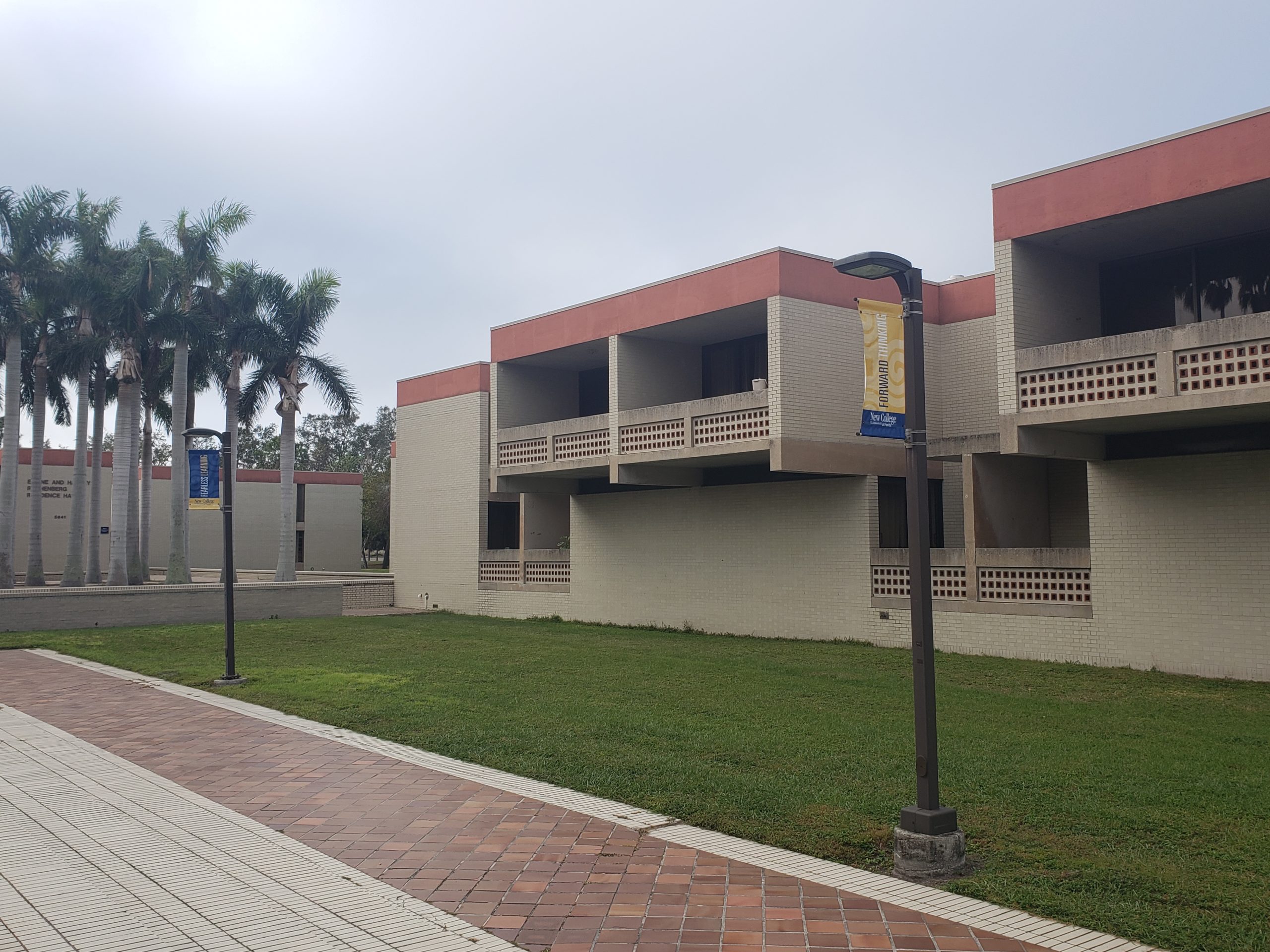Throughout the years, New College has been met with criticism from the student body regarding issues of food insecurity and the quality of life on campus. Whether it be due to food quality, accessibility issues or even just finding suitable times to eat during a busy day, administration has heard the woes. Most recently, the announcements of the meal plans for the Independent Study Project (ISP) interterm this academic year, as well as the prices for staying on campus over winter break were met with significant backlash.
On Nov. 2, Residence Hall Director Sean Brueggemann sent an email announcement informing students that campus residence halls would close for the holiday season on Dec. 18, reopening Jan. 1. The email continued with instructions on how to apply for housing over this 14-day period, including a link to the required online application. In this application, the prices were revealed:
$291.20 for a Pei Triple, $392 for a Pei Double, $405.16 to stay in B Dorm, $435.40 for B Dorm Preferred Single, $504 for all other letter dorms, $554.40 for a letter dorm single and $544.32 for a Dort/Goldstein room.
These rates were met with complaints from the student body, citing unreasonably high prices as the primary source of frustration. In an email interview with New College Chief of Staff and Interim VP of Student Affairs Bradley Thiessen, answers were offered to explain the costs. When asked what factors affect the prices of winter break housing, Thiessen replied, “Winter break housing prices are our standard daily rate of a room applied across a two-week period.”
“It’s my understanding that New College leadership (through our Chief Financial Officer) recommends housing prices to our Board of Trustees (BOT) for consideration and approval,” Thiessen continued. “Once those prices are set for the academic year, those rates dictate the winter break cost.”
When asked about which campus amenities would still be available throughout the break, Thiessen answered that “while Campus Police will be available and able to respond to emergencies, we will not be able to offer our standard services and amenities to students for the two weeks of winter break. This is something we need to consider for the future.”
It’s also worth noting that during the 14-day break period, Residence Life staff will inspect all residence halls, citing violations such as damage, unauthorized pets and unauthorized appliances. These citations will be sent via email by Jan. 6.
Thiessen did offer a potential solution for those struggling with housing or financial insecurity.
“This year, we are planning to refer students to our Completion and Retention Scholarship fund to help cover the cost of winter break,” he wrote. “Going forward, we’ll need to figure out a sustainable plan to help students with winter break housing.”
On Nov. 22, Thiessen sent an email to students outlining the parameters of the ISP meal plans. It was announced that the Hamilton “Ham” Center would be open for two meal times a day throughout the interterm: brunch from 11:30 a.m. to 1 p.m. and dinner from 4:30 p.m. to 6:30 p.m. The email went on to say that the students on the unlimited meal plan for the Fall would be defaulted to a 25-Block plan, which equates to one meal per day. The students on a Declining Balance Plan—as well as recipients of an Advocacy and Accessible Learning Center (AALC) meal plan waiver—will not be defaulted to the 25-Block plan. A second plan, the 50-Block plan, allows students to receive two meals a day, at the upgraded cost of $215. Requests for this upgrade were to be made prior to Dec. 7, either in-person at HCL 1 or over email for certain cases.
The email did make it clear that in the 2021-2022 academic year, students were automatically put on the pricier 50-Block plan, making it appear as an effort to save students money. Alternatives to the 50-Block upgrade are offered, such as purchasing flex dollars in $50 increments via CashNet. Using the flex system, students pay each time they eat, costing $9.25 for a brunch swipe and $10 for a dinner swipe.
The interterm period lasts from Jan. 3 until Jan. 27, meaning that these meal plans need to effectively feed students for nearly a month. Thiessen continued in the email announcement, mentioning more ways that the school and the New College Student Alliance (NCSA) are trying to combat food insecurity on campus. These potential solutions included the installation of more vending machines on campus, providing a shuttle service to University Town Center (UTC) on Sunday mornings for grocery shopping and even contacting food trucks to get a regular rotation on Friday and Saturday evenings. These solutions will clearly need time to materialize, but they certainly would help students struggling with food insecurity.
In addition to the administration and NCSA’s combined efforts, students themselves have also been trying to find solutions. On Nov. 28, an interest form for “ISP Community Meal Nights” was sent to New College’s student email forum by first-year Shauna McKenney. The form proposed an idea for students to collaborate throughout the interterm in order to provide students with hot meals in the Pei 2 kitchen at no cost.
At the time of this article’s publication, these community meal nights are to be held twice throughout the entire ISP period, but could expand to more depending on student engagement. This incentive by McKenney not only represents the student body’s requests for good food at convenient times, as well as the school’s problems with properly feeding the students.

